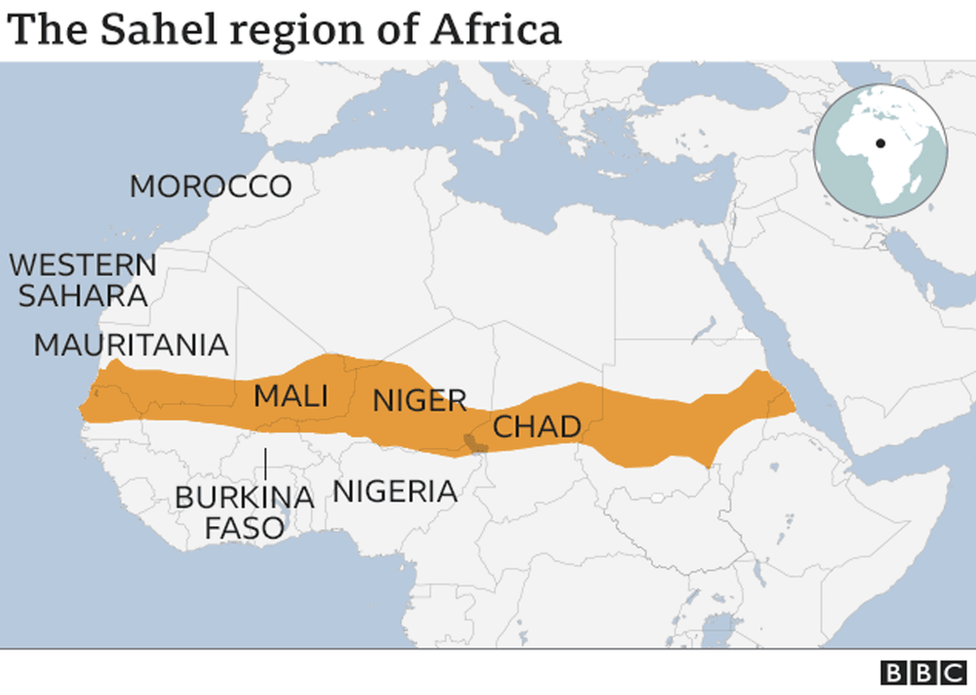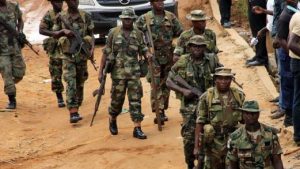
August 9, 2023. Al Jazeera – A former rebel leader and politician in Niger has launched a movement opposing the military government that took power in a July 26 coup, a first sign of internal resistance to army rule in the strategically important Sahel country.
In a statement seen on Wednesday, Rhissa Ag Boula said his new Council of Resistance for the Republic (CRR) aims to reinstate overthrown President Mohamed Bazoum who has been in detention at his residence since the takeover.
“Niger is the victim of a tragedy orchestrated by people charged with protecting it,” the statement said.
The announcement comes as diplomatic efforts to reverse the coup have stalled after the military government rejected the latest diplomatic mission from the African Union and the Economic Community of West African States (ECOWAS).
Niger’s coup leaders denied entry to African and United Nations envoys on Tuesday, resisting pressure to negotiate before a summit on Thursday at which heads of state from the ECOWAS will discuss the possible use of force.
Ag Boula’s statement said it supports ECOWAS and any other international actors seeking to restore constitutional order in Niger, adding that it would make itself available to the bloc for any useful purpose.
Another CRR member said several Nigerien political figures had joined the group but could not make their allegiance public for safety reasons.
Ag Boula played a leading role in uprisings by Tuaregs, a nomadic ethnic group present in Niger’s desert north, in the 1990s and 2000s. Like many former rebels, he was integrated into government under Bazoum and his predecessor Mahamadou Issoufou.
While the extent of support for the CRR is unclear, Ag Boula’s statement will worry the coup leaders given his influence among Tuaregs who control commerce and politics in much of the vast north. Support from Tuaregs would be key to securing the military government’s control beyond Niamey’s city limits.
Democratic ECOWAS member states such as Nigeria want the reinstatement of the civilian government that had been relatively successful in containing a deadly campaign by armed groups linked to al-Qaeda and ISIL (ISIS) which has devastated the Sahel region.
Mutinous soldiers detained Bazoum and seized power on July 26, claiming they could do a better job at protecting the nation from the violence.
The coup comes as a blow to many countries in the West, which saw Niger as one of the last democratic partners in the region against the expansionist threat of armed groups. Niger also matters to the global market on various fronts, including its 5 percent share of the global supply of uranium.
Complex diplomatic picture
The coup has already led to border and airspace closures that have cut off supplies of medicine and food, hampering humanitarian aid in one of the world’s poorest countries.
US Secretary of State Antony Blinken said late on Tuesday that he had spoken to Bazoum to express continued efforts to find a peaceful resolution to the crisis.
“The United States reiterates our call for the immediate release of him and his family,” he posted on the social media platform X, formerly known as Twitter.
Nigeria’s President and ECOWAS chairman Bola Tinubu imposed more sanctions on Niger on Tuesday, aimed at squeezing entities and individuals involved in the takeover, and said all options were still on the table.
ECOWAS has said the use of force would be the last resort. The bloc’s defence chiefs have agreed on a possible military action plan, which heads of state will discuss at their summit on Thursday in the Nigerian capital, Abuja.
But Mali and Burkina Faso, ECOWAS members that have rejected Western allies since their own military took power in coups in the past three years, have promised to defend Niger’s new army rulers from any forceful attempt to remove them.
In a letter to the UN, they called on the Security Council to prevent any armed action against Niger, saying it would have unpredictable consequences such as the break-up of ECOWAS, a humanitarian disaster, and a worsening security situation.
Accusing Western powers of using ECOWAS as a proxy to conceal a hostile agenda towards Niger, they said they were committed to finding solutions through diplomacy and negotiation.
Mali and Burkina Faso previously said they would treat any military intervention in Niger as an act of war.
Further complicating the diplomatic picture is the influence of Russia in the Sahel region, which Western powers fear could grow stronger if the military government in Niger follows Mali’s example by throwing out Western troops and inviting in Wagner mercenaries.
Niger currently hosts US, French, German and Italian troops under agreements made with the now-deposed civilian government.



